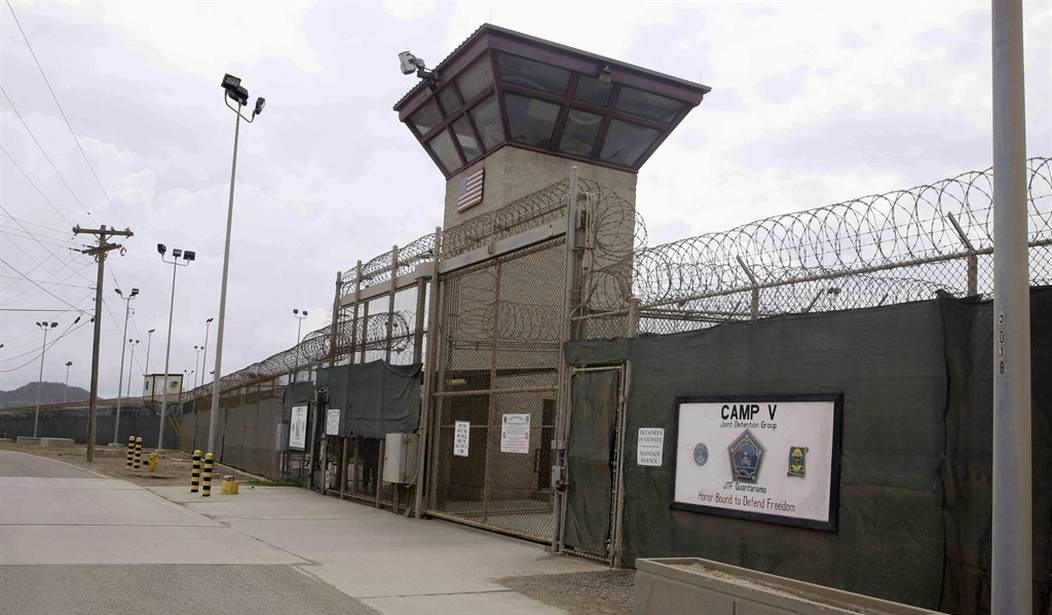On October 9th, residents of Leavenworth, Kansas will hold a peaceful demonstration outside the gates of Fort Leavenworth to protest reports that President Obama may transfer Guantanamo Bay (Gitmo) terrorist detainees to their town. It should surprise no one if we also start to see similar protests in South Carolina and Colorado, two more states where the president may send Guantanamo’s dangerous inmates. Although local leaders and residents in all of these jurisdictions ought to be concerned about the implications of having some of the world’s most committed terrorists land on their doorstep, this is also a scenario that should have us worried on a national level as well.
As dozens of retired generals and admirals, along with several civilian experts with long careers in national security, noted earlier this year in making their case to President Obama on why he should keep Gitmo open, there are numerous risks associated with transferring these detainees to the United States. Any facility that becomes host to Gitmo detainees would become a high-probability target of sympathetic jihadists, along with the community in which the facility is located. The signatories also pointed out that terrorist inmates have previously plotted or facilitated terrorist attacks from inside prison, and that such inmates may be successful in persuading authorities to adjust prison security measures to accommodate religious practices, as was the case of “shoe-bomber” Richard Reid in a supermax prison in 2009.
The signatories also noted that bringing Gitmo detainees to the United States will encourage detainee defense counsel to assert that their clients’ physical presence in the United States makes them eligible for a greater range of legal rights and that such rights can only be fully realized in the civilian federal court system. It is entirely possible that a federal judge will buy this argument. Once the detainees are in the federal court system, prosecutors potentially will have to make a difficult choice: risk disclosing classified information to secure a conviction or drop charges.
Recommended
Despite all these security risks – and indeed, despite the law prohibiting President Obama from bringing any detainees stateside – the president may be gearing up to cross Guantanamo off his presidential bucket list by initiating such a transfer.
Under current law, it is illegal for President Obama to transfer Guantanamo detainees to American soil. Every National Defense Authorization Act (NDAA) for the past several fiscal years, including the one currently in effect, has contained prohibitions both on spending money to transfer Gitmo detainees to the U.S. and on spending money to construct new facilities or modify existing ones for such a purpose. The FY 2016 NDAA, [which as of this writing has been passed by the House and Senate] after having undergone conference negotiations, contains similar provisions.
And yet, the President has asked the Department of Defense to measure the drapes at various locations: Ft. Leavenworth in Kansas, the Navy Brig in South Carolina, and the Supermax prison in Florence, Colorado and the Centennial South Correctional Facility in Colorado –for the purpose of determining the capability of these prison facilities to house Gitmo detainees. So what gives?
For one thing, it is looking increasingly likely that President Obama will veto the FY 2016 NDAA once it reaches his desk. While the Gitmo transfer restrictions probably will not be the sole reason, (the President is also unwilling, despite the mounting severity of global threats, to raise the budget for the military without doing so for the entire federal budget), the White House has cited the transfer restrictions as among the reasons for a potential veto. Whether this potential veto forces changes to these or other provisions in the NDAA, including changes that would open the door for the President to bring detainees to the United States (as an earlier Senate version of this legislation would have done), remains to be seen.
But even if Mr. Obama relents and signs the FY 2016 NDAA into law with the Gitmo transfer restrictions intact, President Obama may attempt to transfer all the detainees to a U.S. prison anyway. The president has made no secret of his belief that he considers the prohibition on transferring Gitmo detainees to the U.S. to be an infringement on the executive branch’s constitutional prerogatives – a highly questionable assertion, given Congress’s role in crafting the laws on who can be lawfully present within U.S. borders. In late July of this year, Lisa Monaco, Assistant to the President for Homeland Security and Counterterrorism, repeatedly dodged questions put to her by audience members as to whether the President would act unilaterally, without Congress, to transfer Gitmo detainees to the United States.
Congress and the American people – most especially communities with prisons on the list as possible destinations for Gitmo’s terrorist detainees – should continue to signal to the White House that the transfer of Gitmo detainees to the United States is both highly dangerous and, under the laws in effect today, illegal. With less than fifteen months left for President Obama to try to fulfill his misguided campaign pledge to shut Gitmo down, building that case is now more important than ever.

























Join the conversation as a VIP Member